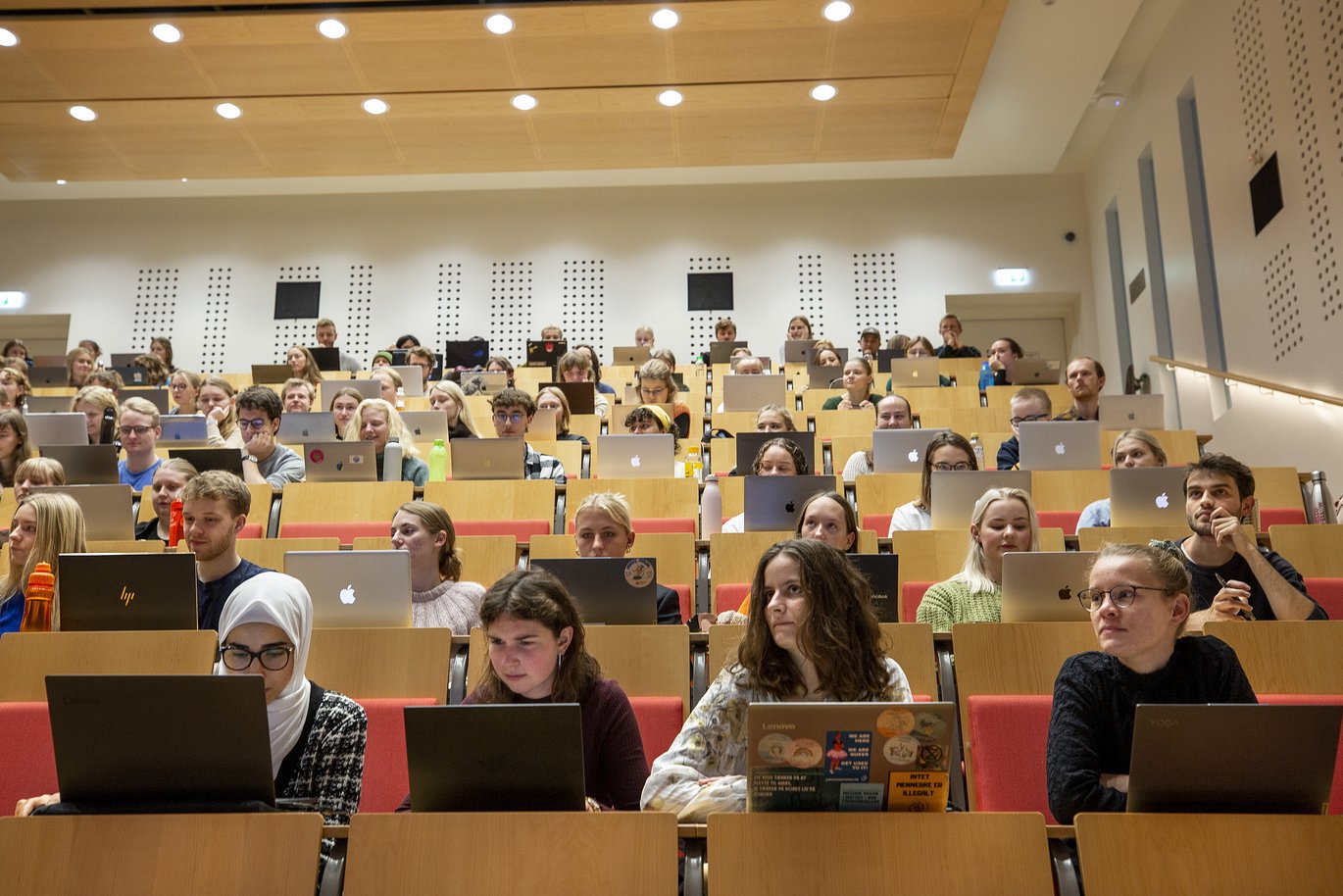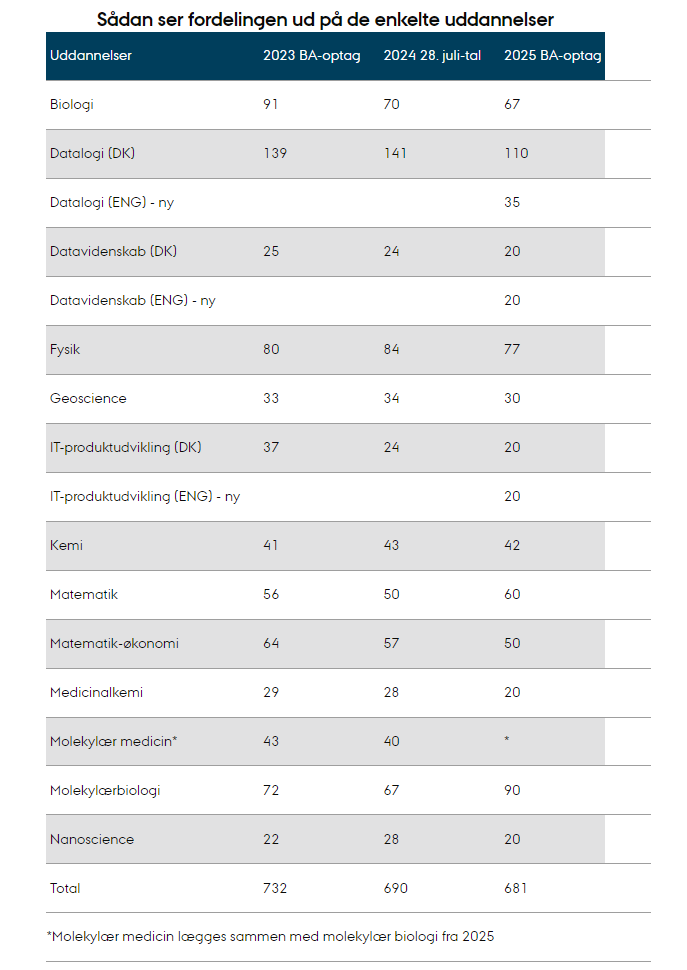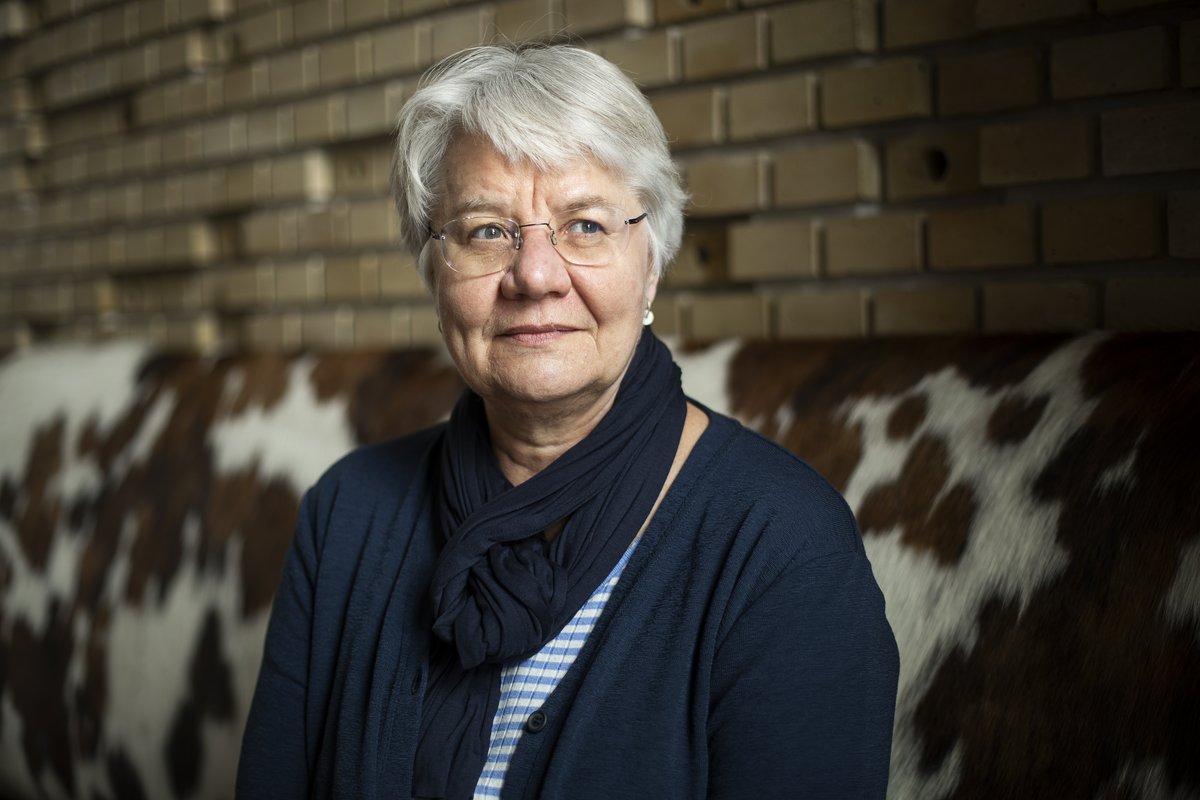Natural Sciences will close 51 student places but won’t face academic consequences, says dean
Almost all degree programmes at the Faculty of Natural Sciences will have fewer students as a result of enrolment caps, but the faculty will also open three new English-taught programmes. To safeguard its study environments, no degree programme will admit fewer than 20 students.

Natural Sciences is the second faculty at Aarhus University to publish its plan for implementing enrolment caps, which are required as part of the Master’s degree reform.
According to dean Birgit Schiøtt, the faculty has found a solution that avoids negative academic implications.
“We won’t face any academic consequences. We will keep all our degree programmes and safeguard our stimulating study environment. By this we mean that there will be enough students on each degree programme to create a good academic and social atmosphere. This was one of our principles. Some programmes are down to an intake of 20 students, and we don’t want to go any lower than that,” says Birgit Schiøtt.
On paper, Natural Sciences was supposed to cut 124 student places, but due to a lower intake in recent years – partly as a result of unemployment resizing on Biology, Molecular Biology, Molecular Medicine, Medicinal Chemistry and Geoscience – this figure is now down to 51 places. In addition, Nat has been allocated 75 new student places on English-taught programmes. The faculty will need to find these places elsewhere.
“There is no simple solution. We’ve had to look at all our 13 degree programmes, because they are all at different stages of a development that’s already underway,” says Birgit Schiøtt.
Enrolment caps at Natural Sciences
The senior management team gave Natural Sciences the task of reducing its intake by 124 student places in relation to its average intake between 2018 and 2022. But compared with Nat’s intake in 2023, this only represents a reduction of 51 places. In addition, Nat has been allocated 75 new student places on English-taught degree programmes. So instead of having to cut 126 places, the faculty only needs to reduce its intake by 51 overall. Compared with its 2024 intake, for which the final figures are not yet available, this represents an even smaller reduction, since admission numbers have been declining.
The faculty management team at Nat has based its plan on six principles:
- There should be a balance between lab-based and non-lab-based subjects.
- Upper secondary school subjects should still be offered.
- All departments must offer at least one programme.
- All Bachelor’s programmes must have at least 20 students.
- Focus should be on subjects where there is potential to recruit new Bachelor’s students and for graduates to find employment.
- Focus should be on dropout rates after the first year.
Source: Natural Sciences' staff portal
Molecular Medicine and Molecular Biology to be combined
The faculty management team has met its enrolment cap obligations by reducing the number of student places on most of its programmes. Some by more than others, but all programmes will retain at least 20 students. Molecular Medicine and Molecular Biology, which had an intake of 43 and 72 respectively in 2023 (a total of 115, compared with a total of 107 in 2024), will be combined and capped at 90 students. But this is a result of a previous – not the current – degree programme resizing initiative and was already in process.
“Both these programmes were being cut back due to unemployment resizing and were almost down to 100 places. But because this resizing was based on graduate unemployment rates, we also had to cap the Master’s programme. And this meant the Bachelor’s programme needed to come down too – to 90 places. Cutting back is never an easy task, but it’s a process we’d already started. This is also why it’s difficult to compare figures, because some programmes are already on their way down while others are growing,” says Birgit Schiøtt.
75 new places on English-taught programmes: “We all agreed we needed these places”
The faculty will welcome 75 extra students on three new English-taught programmes, which will be created within subject areas that already exit at Natural Sciences: computer science, data science and IT product development.
This mainly involves moving some of the places on these programmes to the corresponding English-taught programme. For example, IT Product Development will go from 37 places in 2023 to 20 places from 2025, while the new English-taught programme will get 20 places. Computer Science will decrease from 139 in 2023 to 110 from 2025, while the English-taught programme will get 35 places.
“Computer Science has not been able to fill all its places, and we have solved this issue by moving some of the places on the Danish-taught programme to the English-taught programme. We made this decision in collaboration with the staff on the Computer Science programme. They are keen to attract international students and increase their intake,” says Birgit Schiøtt.
Seen in this light, the new places on English-taught programmes are unequivocally positive.
“It was an unfortunate coincidence that sector resizing came along at the same time as we got the extra places for international students. But everyone in the faculty management team agreed that we should take advantage of these extra places. We would rather take the full 75 places and find them internally; partly through the unfilled places that the three programmes have had until now,” says the dean.
The faculty management team decided not to simply find all the 75 places on other degree programmes, explains Birgit Schiøtt.
Hoping for lower dropout rates
Many of Nat’s degree programmes have had open admission until now, but because of enrolment caps, it is now expected that minimum average grades will be introduced on all degree programmes at the faculty. This gives the dean hope that dropout rates will fall.
“We hope that our dropout rates will decrease, which will ultimately mean that relatively more students will graduate with a Master’s degree at the other end,” she says.
Degree programmes by department:
Department of Biology: Biology
Department of Computer Science: Computer Science (Danish), IT Product Development (Danish), Computer Science (English), IT Product Development (English)
Department of Physics and Astronomy: Physics
Department of Geoscience: Geoscience
Department of Chemistry: Medical Chemistry, Chemistry
Department of Mathematics: Data Science (Danish), Data Science (English), Mathematics, Mathematics-Economics
Department of Molecular Biology and Genetics: Molecular Biology and Molecular Medicine (will be combined)
Interdisciplinary Nanoscience Centre (iNANO): Nanoscience
Source: Natural Sciences' staff portal

“We can’t expand”
But are there really no consequences of sector resizing at Nat? Well, there is one, says Birgit Schiøtt.
“We can’t expand. We would like to expand and we were in the process of doing so,” says the dean, who points out that there is a demand for science graduates in the business world.
Without the reform, the faculty would have gladly accepted the 75 extra places on English-taught programmes and not made cuts elsewhere.
“Then we wouldn’t have had to cut back on the eight programmes that weren’t subject to unemployment resizing,” says Birgit Schiøtt.
On Thursday, Novo Nordisk made its first public statement on the Master’s degree reform, which it described in Politiken as the "wrong way to go."
“The life science industry in Denmark stands to lose 10,000 employees by 2030, many of them highly qualified,” Mille Borchorst, senior vice president of people and organisation at Novo Nordisk, told the newspaper.
The dean recognises this picture.
“Science graduates play a central role in Novo Nordisk, and the company employs a lot of our graduates,” says Birgit Schiøtt:
“One of the main drivers behind sector resizing was graduate unemployment. And all our programmes have decreasing rates of graduate unemployment, which confirms that our graduates are in demand.
Besides its focus on employability, the faculty management team was also keen to retain its upper secondary school subjects.
“Many of our programmes are oriented towards upper secondary shool subjects, and that’s a decision we’ve made: We’ll continue to offer these subjects, because we think it’s important to have an upper secondary teacher training programme in Western Denmark. The University of Southern Denmark and Aalborg University also offer some of these subjects, but not nearly enough. So if we’re going to have upper secondary schools, we need to keep all these subjects. But that’s not to say that all our graduates are destined to be teachers. The vast majority of our graduates go into industry,” says Birgit Schiøtt.
Will not affect employees
Introducing enrolment caps will not hit the faculty hard financially. Many programmes are already being scaled back, and the faulty can expect an increase in its FTE income (money received for every full-time student, ed.) through the new, shorter career-focused Master’s degree programmes. As well as this, Nat will be able to welcome more international Master’s students.
With this in mind, the new plan is not expected to have any negative consequences for members of staff at Nat, explains Birgit Schiøtt.
“There will be some minor adjustments and most programmes will lose a few places. But by the time the new intake figures and smaller student cohorts take effect, we will have hopefully increased our FTE income on our Master’s degree programmes. But sector resizing will cause our revenue to drop in the short term, before we increase our FTE income,” says Birgit Schiøtt, who continues:
“It is clear that this (sector resizing, ed.) is our focus right now and that departments need to adjust accordingly. Most departments are reorganising their finances to reply more on external research funding rather than FTE income,” she says.


